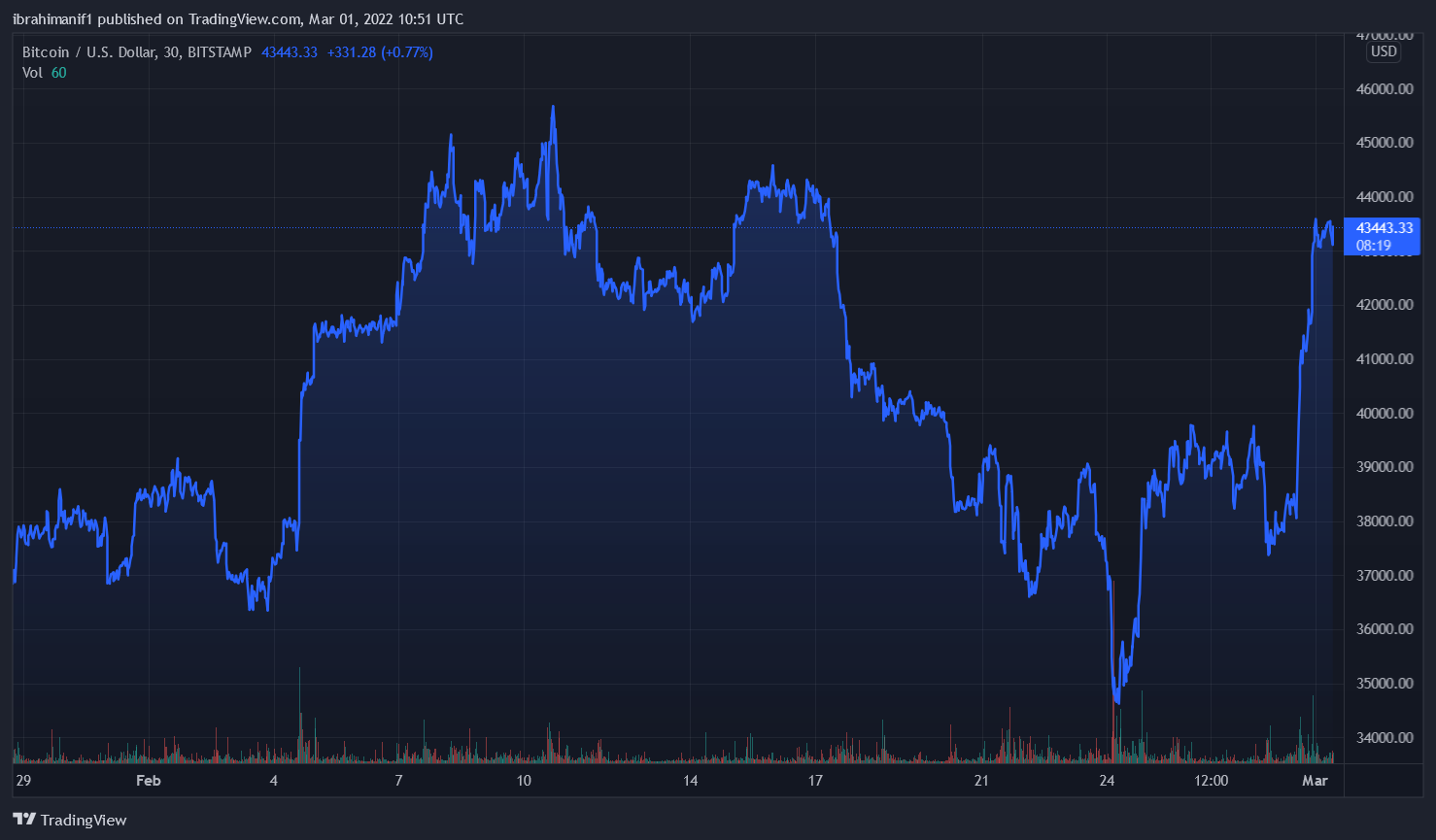US Warns Against Exchanges Facilitating Transactions For Russians Amid Crackdown
With the EU, US, and other countries imposing financial sanctions on Russia, there have been concerns that individuals and organizations in the country will resort to crypto to circumvent the restrictions.
US Sanctions Will Include Digital Assets
With effect from March 1st, the US Treasury Department said that recent sanctions against Russia will include checks on digital currencies. The White House also advised large crypto exchanges to avoid doing business with sanctioned firms.
The government says it will take action against anyone who circumvents sanctions on Russia, including through the use of digital currencies, in an executive order scheduled to be publicly released later today.
The executive order included:
“All property and interests in property that are in the United States, that hereafter come within the United States, or that are or hereafter come within the possession or control of any United States person of the following persons are blocked and may not be transferred, paid, exported, withdrawn, or otherwise dealt in … deceptive or structured transactions or dealings to circumvent any United States sanctions, including through the use of digital currencies or assets or the use of physical assets.”
Nations have imposed sanctions on Russia since the invasion of Ukraine began last week.
According to a deal reached over the weekend, “selected Russian banks” will be excluded from the international financial transaction system SWIFT, and the US will now impose sanctions on Russia’s central bank and other sources of income.
According to Bloomberg, the White House has asked major cryptocurrency exchanges to verify that their platforms cannot be used to circumvent Russian sanctions.

BTC/USD surges to $43k. Source: TradingView
Russians will have limited access to foreign cash as a result, which would stifle economic progress and further isolate the country. The new round of sanctions is in response to Russia’s invasion of Ukraine, which resulted in combat in Kyiv and the surrounding areas.
It comes after Ukraine’s vice prime minister, Mykhailo Fedorov, asked crypto exchanges to block Russian users in a tweet over the weekend.
Related Readings | Ukraine Is Better ‘Armed’ Than Russia In Crypto Adoption As War Breaks Out
Exchanges Are Not On Board
Exchanges are not completely on board. While Binance has claimed it will not “unilaterally” freeze the accounts of all Russian users, it has warned it will block the accounts of Russian clients targeted by sanctions.
A spokesperson for the world’s largest crypto exchange told CNBC that crypto is “meant to provide greater financial freedom for people across the globe” and a blanket ban would “fly in the face of the reason why crypto exists”.
Another prominent exchange, Coinbase, has likewise refused to impose a blanket block on all Russian addresses, but has stated that it will abide by the restrictions.
Kraken’s CEO, Jesse Powell, tweeted that the company “cannot freeze the accounts of our Russian clients without a legal requirement to do so.”
With inflation expected to rise in Russia, the ruble is likely to lose even more value, forcing Russians to look for other options. In Ukraine, citizens were spotted using bitcoin and the popular stablecoin tether in the face of a falling hryvnia and the suspension of electronic currency transfers.
Russia has been a strong supporter of cryptocurrency, with the country accounting for around 12% of the global market. This has spurred speculation that crypto may be used to circumvent restrictions.
Related article | Should Crypto Exchanges Ban Russian Users? Kraken CEO’s Opinion
Featured image from Pixabay, Chart from TradingView.com